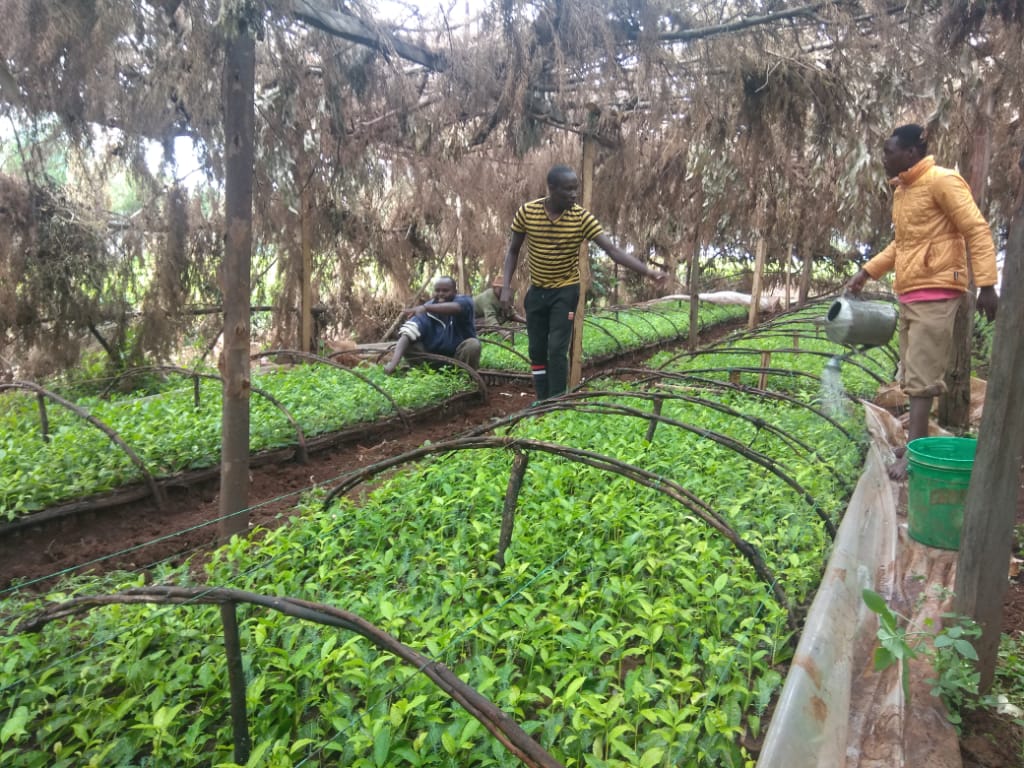In 2016, Robert Choge started raising tea seedlings as a side hustle for sale at his rural home in Nandi, a tea growing region. The agribusiness did well in the first two years; however, he is now facing inadequate market due to changing weather conditions this year that led to delayed rains forcing farmers to shelve their plans.
“I have 58,000 tea seedlings ready for transplanting and I am selling each at between Sh11 to Sh12,” said Choge.
Farmers interested in purchasing the seedlings can visit his farm at Kipsigak junction, Nandi County.
Choge, an assistant manager at a Nairobi based marketing communications firm started the venture in July 2016 with an initial capital investment of Sh24,000 from his savings at the job. He used Sh6,000 to buy 20,000 sachets for transplanting, Sh16,000 for labor, Sh4,000 to buy polythene covers.
Of the 20,000 seedlings he planted, 16,000 matured while the rest died. In this, he planted 8,000 seedlings on his two acre farm inherited from his father and sold the rest to local farmers.
Related content
Government gives Vihiga farmers free avocado, tea and coffee seedlings
Kenya overtakes India in key black tea global markets
Growing purple tea is seven times more profitable than traditional tea varieties

Robert Choge (center) superving casuals watering tea seedlings at his Nandi farm.
“In the 2017/18 season, I ploughed back the profits by scaling up my production to 30,000 seedlings using Sh60,000 to buy tubes at Sh10,000, labor Sh25,000, polythene covers Sh10,000 and shade Sh6,000, the rest was used for paying casuals to water the plants,” he said.
The germination percentage was 83 per cent meaning out 30,000 seedlings he got 25,000 which he sold at Sh10 each earning Sh250,000 and a profit of Sh190,000.
In the 2018/19 season Choge scaled up his tea production capacity again this time planting 70,000 seedlings. At the moment 58,000 seedlings are ready for transplanting.
According to the 2019 Economic Survey Report, the area under tea has been gradually increasing and stood at 236,200 ha in 2018 from 203,000 ha in 2014.
This led to tea production increased by 12.1 per cent to 493,000 tonnes in 2018. In this, production by small holders increased by 10.7 per cent to 272,500 tonnes while output by estates recorded an increase of 13.8 per cent to 220,500 tonnes in 2018. The average yield of tea from estates increased by 12.6 per cent compared with 6.1 per cent in the average yield of tea from small holders to 2,932.2 kilograms per hectare and 2,030.6 kilograms per hectare, respectively, in 2018. Higher production was attributed to good weather conditions in the first quarter of the year.
Robert Choge can be reached on 0718401663
















Comments powered by CComment